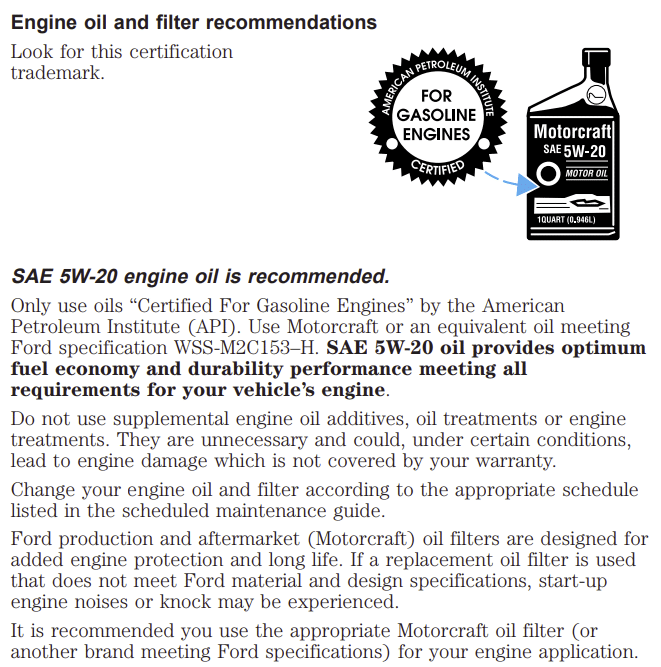The 2000 Ford F-150 is a versatile and dependable pick-up truck from the renowned Ford F-Series. This iconic American truck has been the best-selling vehicle in the United States for decades, and the 2000 model is no exception. It offers a variety of engine options, including a 4.2L V6, 4.6L V8, and 5.4L V8. These engines deliver impressive power and performance, making the 2000 Ford F-150 a popular choice for both work and recreational purposes.
Choosing the right oil type for your 2000 Ford F-150 is crucial to maintaining its performance, efficiency, and longevity. The engine oil plays a vital role in ensuring that your truck’s engine runs smoothly and efficiently by providing proper lubrication, cooling, cleaning, and protection against corrosion.
Using the correct oil type as recommended by Ford can help to prevent unnecessary wear and tear on your engine components, optimize fuel economy, and reduce the risk of engine damage, which could result in costly repairs or decreased performance.
This article will guide you through the process of selecting the right oil for your 2000 Ford F-150, ensuring that your truck continues to perform at its best.
What Type Of Oil Does A 2000 Ford F150 Take High Mileage?
For the 2000 Ford F-150, Ford recommends using Motorcraft SAE 5W-20 Super Premium Motor Oil. This oil is specifically designed to provide the best performance and protection for your truck’s engine.
In addition to the Motorcraft SAE 5W-20 Super Premium Motor Oil, Ford also specifies that the oil must meet the Ford specification WSS-M2C153-H. This specification ensures that the oil used in your vehicle meets Ford’s strict standards for quality and performance.

To maintain optimal engine performance and protection, it is important to change your engine oil and filter according to the appropriate schedule listed in the scheduled maintenance guide provided by Ford. Regular oil changes help to ensure that your engine remains clean and well-lubricated, reducing the risk of engine damage and prolonging the life of your vehicle.
Oil Capacity For Different Engine Options
- 5.4L V8 – 6 qt (5.7 l) For the 2000 Ford F-150 equipped with a 5.4L V8 engine, the oil capacity is 6 quarts (5.7 liters).
- 4.6L V8 – 6 qt (5.7 l) For the 2000 Ford F-150 equipped with a 4.6L V8 engine, the oil capacity is also 6 quarts (5.7 liters).
- 4.2L V6 – 6 qt (5.7 l) For the 2000 Ford F-150 equipped with a 4.2L V6 engine, the oil capacity is 6 quarts (5.7 liters) as well.
Ford recommends using engine oil that is “Certified For Gasoline Engines” by the American Petroleum Institute (API). This certification ensures that the oil meets specific industry standards for quality and performance.
Ford production and aftermarket (Motorcraft) oil filters are designed for added engine protection and long life. If a replacement oil filter is used that does not meet Ford material and design specifications, start-up engine noises or knock may be experienced. It is recommended you use the appropriate Motorcraft oil filter (or another brand meeting Ford specifications) for your engine application.
Understanding Engine Oil
Functions of engine oil:
- Lubrication.
Engine oil serves as a lubricant to reduce friction between moving parts within the engine. By creating a thin film between these components, engine oil minimizes wear and tear, helping the engine operate smoothly and efficiently. This is especially important for the moving parts within the engine that are in constant contact, such as pistons, valves, and bearings. - Cooling.
As the engine operates, it generates heat. Engine oil helps dissipate this heat by absorbing it and redistributing it throughout the engine. This process helps prevent overheating and ensures that the engine maintains an optimal operating temperature. - Cleaning.
Engine oil also works as a cleaning agent by suspending and removing contaminants, such as dirt, debris, and combustion by-products, that accumulate within the engine. This process helps keep the engine clean and prevents the buildup of harmful deposits that could reduce engine efficiency and lead to damage. - Protection against corrosion.
Engine oil contains additives that protect engine components from corrosion caused by moisture and combustion by-products. This protection is crucial for the longevity and performance of the engine.
Types of engine oil:
- Conventional oil.
Conventional oil, also known as mineral oil, is derived from crude oil and has been the traditional choice for most vehicles. It provides sufficient lubrication, cooling, and protection for engines under normal operating conditions. However, it may not be ideal for high-performance engines or extreme temperature conditions. - Synthetic oil.
Synthetic oil is a chemically engineered oil that offers superior performance compared to conventional oil. It provides enhanced lubrication, better temperature stability, and increased oxidation and thermal breakdown resistance. Synthetic oil is ideal for high-performance engines, extreme temperatures, and extended oil change intervals. - Synthetic blend.
A synthetic blend is a combination of conventional and synthetic oils, offering a balance between the benefits of synthetic oil and the affordability of conventional oil. This type of oil provides improved performance compared to conventional oil but may not offer the same level of protection as a full synthetic oil.
Oil viscosity:
- Multi-grade oils.
Oil viscosity refers to the thickness or resistance to flow of the oil. Multi-grade oils, such as 5W-20, are designed to perform well in a range of temperatures, with the first number (5) indicating the oil’s viscosity at low temperatures (W stands for winter), and the second number (20) representing the viscosity at high temperatures. Multi-grade oils ensure that the engine is properly lubricated in various temperature conditions. - Effects of temperature on viscosity.
Temperature has a significant impact on oil viscosity. In colder temperatures, oil tends to thicken, which may impede its ability to flow and provide proper lubrication. Conversely, in higher temperatures, oil may become too thin, leading to reduced protection and potential engine damage. Choosing an oil with the appropriate viscosity for your climate and driving conditions is essential for optimal engine performance and protection.
Choosing the Right Oil for Your 2000 Ford F-150
- Driving conditions
Consider the driving conditions you typically encounter. Suppose you frequently drive in heavy traffic, dusty or off-road conditions, or use your F-150 for towing. In that case, you may want to consider a higher-performance oil like synthetic or synthetic blend to provide better protection for your engine. - Climate.
Take into account the climate where you live and drive your truck. If you experience extreme temperatures, either hot or cold, synthetic oil may be more suitable as it performs better under a wider range of temperatures compared to conventional oil. - Towing and payload capacity.
If you frequently use your F-150 for towing or carrying heavy payloads, selecting an oil that can withstand the increased demands on the engine is essential. Synthetic oil may provide better performance and protection under these conditions.
Pros And Cons Of Different Oil Types For The 2000 Ford F-150
| Oil Type | Pros | Cons |
|---|---|---|
| Conventional | – More affordable | – May not provide optimal protection under extreme driving conditions or temperatures |
| – Suitable for normal driving conditions | – Shorter oil change intervals compared to synthetic oil |
| – Provides adequate lubrication, cooling, and protection | ||
| Synthetic | – Superior performance in extreme temperatures | – More expensive than conventional oil |
| – Enhanced lubrication and protection under demanding conditions | – May not be necessary for drivers who only drive under normal conditions and follow recommended oil change intervals | |
| – Longer oil change intervals |
| – Improved fuel economy | ||
| Synthetic Blend | – Offers a balance between the benefits of synthetic oil and the affordability of conventional oil | – May not offer the same level of protection as full synthetic oil |
| – Provides improved performance compared to conventional oil | – May have shorter oil change intervals compared to full synthetic oil |
Conclusion
Selecting the right oil type for your 2000 Ford F-150 is crucial for maintaining optimal engine performance, efficiency, and longevity. The appropriate engine oil ensures proper lubrication, cooling, cleaning, and protection against corrosion for your truck’s engine.
By considering factors such as driving conditions, climate, and towing or payload capacity, you can make an informed decision about the best oil type for your specific needs. Remember that Ford recommends using Motorcraft SAE 5W-20 Super Premium Motor Oil that meets the Ford specification WSS-M2C153-H for your 2000 F-150.
Regular maintenance, including timely oil changes, is essential for keeping your 2000 Ford F-150 running smoothly and efficiently. Adhering to the recommended oil change intervals provided in the scheduled maintenance guide will help to prevent engine wear, reduce the risk of damage, and prolong the life of your vehicle. By taking care of your truck and using the appropriate oil type, you can ensure that your Ford F-150 continues to perform at its best for many years to come.










